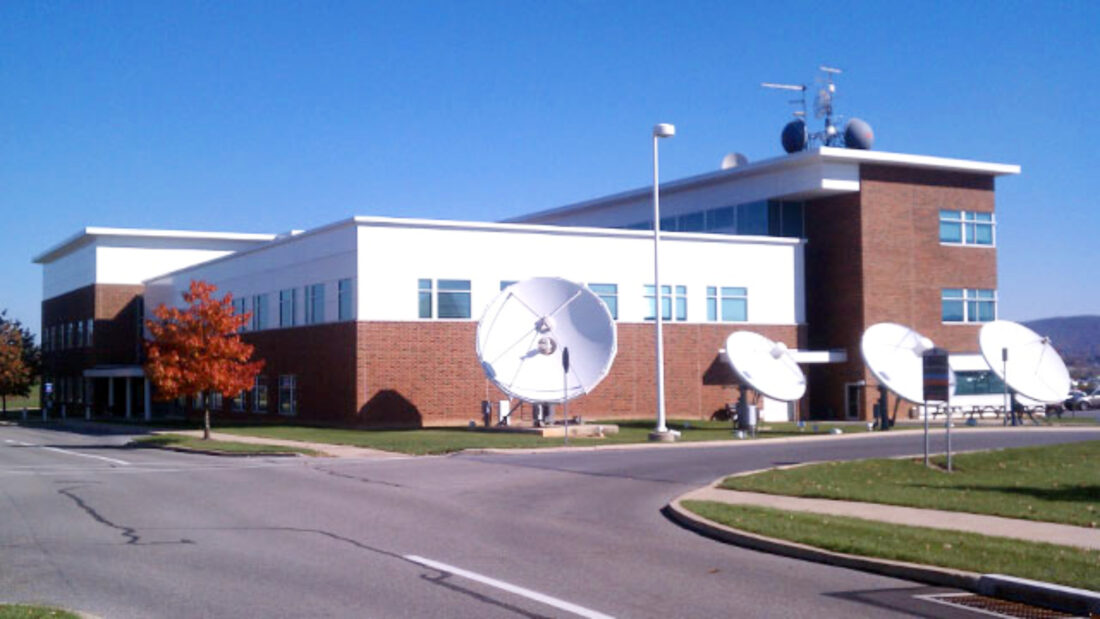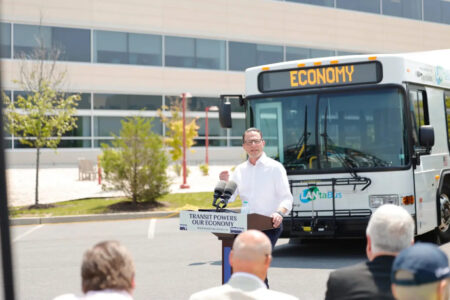WPSU first casualty of federal defunding of public media
Decision comes as university president accepts a 47 percent salary increase

PHOTO PROVIDED The Penn State Outreach Building — the home of WPSU — is pictured. WPSU is set to become the first casualty of the Trump administration’s decision to eliminate federal funding for NPR and PBS.

STATE COLLEGE — After six decades of serving central Pennsylvania, WPSU is poised to become the first casualty of the Trump administration’s decision to eliminate federal funding for NPR and PBS.
The station’s closure follows Penn State trustees’ rejection of a proposed acquisition by Philadelphia-based WHYY, which fell through when trustees deemed the deal too expensive amid ongoing financial challenges at the university.
The deal, which became public only last week, would have transferred the station to WHYY for $1 in exchange for $17 million in subsidies over five years to support its financial sustainability.
“This was an incredibly difficult decision for trustees, as WPSU has long provided quality public broadcasting programming for communities throughout Central Pennsylvania,” said Board Chair David Kleppinger. “We have worked with the administration to find the best path forward for the station and our people who work there. But, given the significant headwinds facing higher education and public media, we could not support the proposed transaction. We know this is a deeply disappointing outcome and we are grateful to the dedicated WPSU employees whose work has enriched our lives and made our community stronger.”
Trustees said Penn State had been exploring alternative funding models for the station, but that the “recent rescission of federal funding for public media only intensified the budget pressures.”
It wasn’t until after the deal collapsed that WPSU’s newsroom learned of Penn State’s plan to shut down the station by next summer as a cost-cutting measure.
“While recent decisions have challenged our future, our dedicated team is actively exploring every possible solution,” WPSU said in a statement on Facebook.
According to the broadcaster, WPSU-TV reaches 515,000 households in 24 counties, while its FM radio station reaches over 450,000 listeners.
WPSU News Director Emily Reddy said, “We’re hoping a solution can be found so that we can keep reporting and WPSU can continue to exist.”
If WPSU were to shutter its operations, she said up to 1.5 million people could lose access to local news alongside PBS and NPR programming.
“Its probably going to be that 24 counties in central and northern Pennsylvania won’t have public media on their TV or radio,” she said, adding that would most seriously impact the elderly and those without access to broadband internet.
In rural communities like northern Pennsylvania’s Forest County, WPSU may be residents’ only source of local news.
WPSU receives approximately $3.4 million a year from Penn State, which accounts for roughly half of its annual budget.
This year, Congress canceled all federal funding to public media, and WPSU also saw a decrease in support from Penn State. Together, these cuts amounted to roughly a quarter of the station’s budget, prompting a round of layoffs in June.
WPSU uses the money it receives from student tuition to produce programming that showcases Penn State’s outreach initiatives.
The station also airs student-produced content, including the award-winning “Centre County Report” newscast from the Bellisario College of Communication’s journalism department. The show delivers local news and information to Centre County residents while giving students practical experience in journalism. It has been on WPSU since 2005 and has won numerous regional and national awards, including seven national titles as the best college newscast in the past 11 years.
In response to recent developments at WPSU, “Centre County Report” announced Wednesday a media partnership with WTAJ-TV for distribution.
The closure of WPSU will also directly impact the station’s approximately 40 employees, who heard they will be laid off by June 30, 2026.
Though WPSU may be the first, PennLive reports that small NPR and PBS stations across the country are confronting the same uncertain future due to Republican cuts to public media. They reported that more than 115 rural stations rely on federal support for over 30 percent of their annual budgets, which could face closure for similar reasons.
Meanwhile, Penn State President Neeli Bendapudi became the second-highest-paid public university president in the nation after trustees approved a 47% increase to her base salary.
The raise brings Bendapudi’s salary to $1.4 million a year, up approximately $450,000.
On top of that, she will collect hundreds of thousands of dollars in benefits.
The decision to increase the president’s salary came after trustees voted in May to close seven commonwealth campuses, citing declining enrollment, demographic shifts and — notably — financial pressures.
The move provoked backlash from employees, alumni and students across Pennsylvania who saw the closures as a betrayal of the university’s land-grant mission.
The move to shutter WPSU drew a comparable mix of outrage and solidarity.
“If there is any silver lining it’s that we get heard from people in the community how much we mean to them,” Reddy said.
In a statement on Facebook, WPSU added, “We are deeply moved by the outpouring of support from our community. To everyone who has signed petitions, written letters and reached out to leadership — thank you. Your voices are powerful, and your belief in WPSU fuels our determination.”




